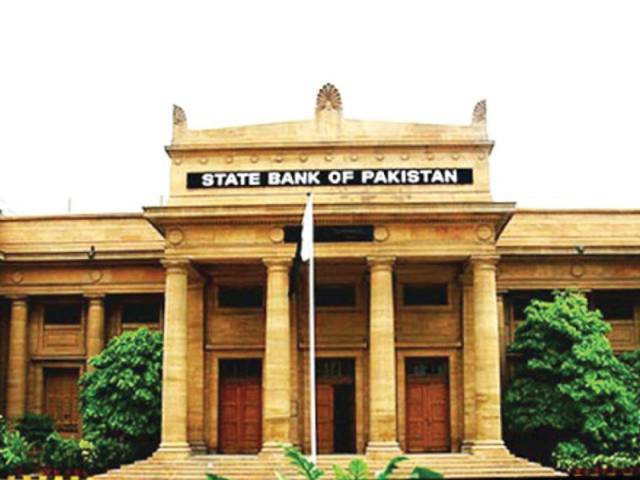Monetary policy statement: Interest rate cut surprises SBP watchers
It is expected to benefit govt in terms of lower debt rollover cost.

It is expected to benefit govt in terms of lower debt rollover cost. PHOTO: FILE
Dawn called it ‘odd’. Business Recorder termed it ‘oxymoronic’.
After all, the statement says inflation is expected to “attain a higher plateau,” as it has already been rising for seven consecutive months. Core inflation, which excludes food and energy items with more volatile price movements, is also indicating “underlying inflationary tendencies,” according to the statement.
The SBP had maintained the status quo in the preceding three monetary policy announcements, which led most analysts to believe monetary easing had finally bottomed out. No wonder, each of 22 analysts that Bloomberg polled before the announcement said they expected no change in the interest rate.
Here is how monetary policy works. Too much money in the economy produces inflation. But too little money restricts economic growth. The SBP tries to strike a balance between fighting inflation and spurring growth by “interest rate targeting” in the interbank market.
Reducing the benchmark interest rate means the central bank will now try to maintain the overnight interest rate in the banking system at its new target rate of 5.75%.
The SBP will inject fresh money if the overnight cost of funds in the banking system shoots above 5.75%. Similarly, it will mop up excess liquidity in the banking system through an open-market operation in case the overnight interest rate drops below 5.75%.
But conventional economics suggests central banks shy away from reducing the benchmark interest rate whenever they notice an increase in inflation. Pumping more money into the system when consumer prices are already showing an upward trend poses the danger of stronger inflation.
The SBP statement clearly falls short of explaining the rationale behind its decision to lower the interest rate amidst rising inflation.
“The surprise move came with little justifications,” said AKD Securities Research analyst Muneeba Shoaib. She added the monetary policy decision ‘contradicts’ macro trends, such as the expectation of higher inflation in the wake of rising international prices of commodities and higher domestic (energy) tariff.
“With tighter fiscal targets, the 0.25% reduction is unlikely to serve as a growth catalyst,” she added.
According to Standard Chartered Pakistan senior economist Bilal Khan, the Monetary Policy Committee (MPC) decision points to inconsistency in applying the recommendations of the central bank’s in-house model known as the Forecasting and Policy Analysis System.
“The January and April minutes (of the meetings of the MPC) showed that while the model suggested further easing, the MPC held steady despite a more benign global and domestic outlook,” Khan said in a note issued to his clients on Monday.
So why did the SBP resort to monetary easing despite a consistent rise in inflation for the last seven months?
Khan points out that the decision comes on the heels of significant government domestic debt maturities amounting to more than Rs1.5 trillion in July - just before the next MPC meeting.
A reduction in the benchmark interest rate will have a direct benefit for the government in the shape of a reduced “rollover cost” of long-term debt.
In simple words, a reduced policy rate will enable the government to refinance its soon-to-mature long-term debt at a lower interest rate, which will thus decrease its interest charges in the future.
“Saturday’s rate cut is likely to help lower the government’s financing costs if it opts for a rollover,” Khan said.
Published in The Express Tribune, May 24th, 2016.
Like Business on Facebook, follow @TribuneBiz on Twitter to stay informed and join in the conversation.


















COMMENTS
Comments are moderated and generally will be posted if they are on-topic and not abusive.
For more information, please see our Comments FAQ